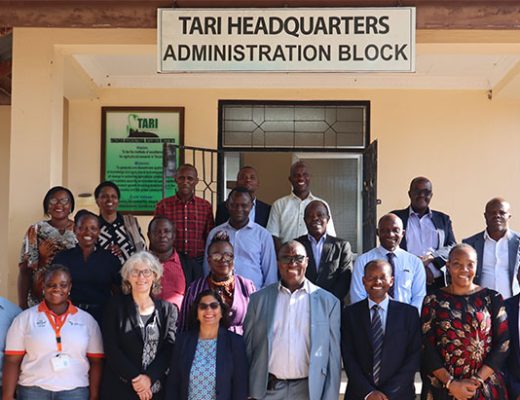The CGIAR, in partnership with the Rwanda Agriculture and Animal Resources Development Board (RAB) and VIAMO, are piloting an innovative system for high-frequency collection of diet quality data in Rwanda. The CGIAR funded project uses a mobile phone-based system to gather diet quality information.
The system has been deployed using an unstructured supplementary service data (like SMS) platform, where respondents answer via their mobile phones (simple or smart) questions regarding their dietary intake. Diet quality was assessed by adapting the Diet-Quality Questionnaire, an agile and easily adaptable questionnaire, to the data collection system. The questionnaire can generate metrics of diet quality by asking 29 questions on consumption of 26 different food groups
In 15 weeks of data collection, the system has communicated with more than 150,000 Rwandans from across the country, with 25,000 completed responses providing unique insights into diet quality across Rwandan society. Data were collected at less than $1 per respondent, with the questionnaire taking around 10 minutes to complete. This crowdsourced approach represents a considerable cost reduction to researchers and are less invasive to respondents.
The preliminary results suggest that women have better quality diets than men, that younger Rwandans have in general worse diets than their elders, due to an increased preference for processed, sweetened, and highly salted foods.

A graph that explains the consumption rate of fruits and vegetables in Kamonyi District (September-December 2021)
Dr. Rhys Manners, who co-leads the study, highlights outcomes of this research as crucial for guiding policy decision making to improve well-being of Rwandans. “In this pilot, the CGIAR along with its partners RAB and VIAMO not only want to stress test the system and its viability, but also to understanding if diet quality changes across time, location, age, sex, and economic group.”
Rwanda is an ideal environment to test such a system; the Government of Rwanda recognizes the importance of data in driving decision-making.
Dr. Marguerite Niyibituronsa, Coordinator of crop processing and food quality management program at RAB emphasized: “The preliminary project results provide a picture of diet quality across Rwandan society. Most of respondents consume a balanced diet, especially cereals, roots and tubers, vegetables, fruits, animal source proteins, and legumes.”
She further mentioned that the results serve as baseline information for further national planning in nutrition, and increase access to nutrients food for households in all categories, both middle and high class. “I recommend such findings to be published widely, so that policy makers are aware that middle income people serves as a model for quality diet.” Dr Marguerite added.
Rhys goes on to conclude, “We’re aiming to develop a system that can be mainstreamed into Rwandan health and nutrition data collections, supporting data-driven decision-making. The beauty of the system is that we can easily adapt and scale it to other neighboring countries.”
Data collection will continue for another 8 weeks, where the project hopes to gain further insights into these patterns and map if diet quality changes across certain periods of the year. Progress of the project can be tracked here on the project’s interactive dashboard: https://dietqualitymap.org




No Comments